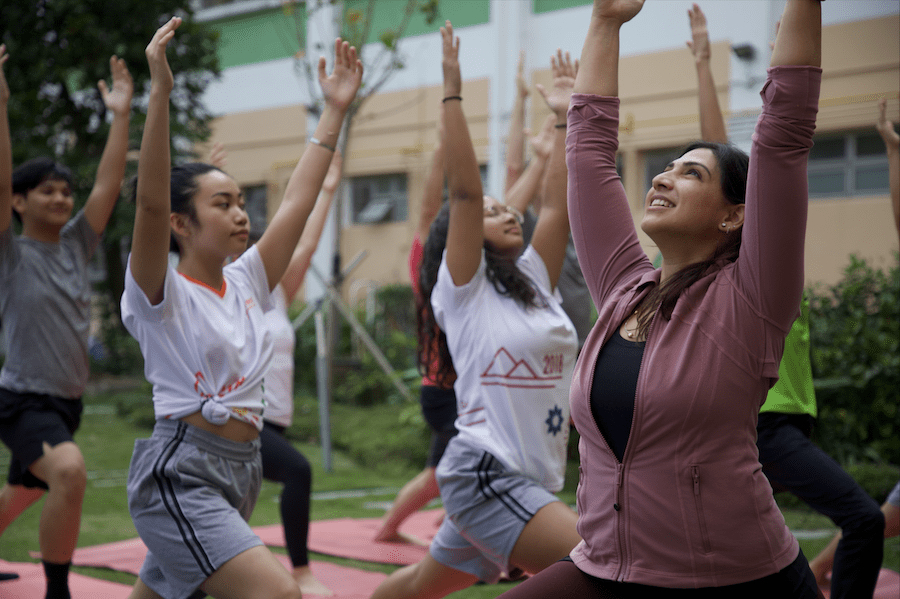Yin yoga: this slow-paced ancient practice offers a sense of relaxation and calm.
As both a certified yoga and meditation instructor, I teach the new weekly yin yoga classes at the RAWC on Sunday afternoons.
Swami Satchidananda, the founder of Integral Yoga, once said: “Calming the mind is yoga, not just standing on the head.” What does yoga mean? From the Western perspective, yoga is a movement-based practice that reduces stress and improves flexibility. There are, however, non-physical forms of yoga, such as volunteering without attachment to results (karma yoga), or love and devotion to your family or religious faith (bhakti yoga). The foundational physical practice of yoga is called hatha yoga. Hatha yoga is a moderately paced, movement-based yoga that drives most stretch classes in gyms or studios.
One style of hatha yoga is yin yoga, a practice with roots in both India and China. Unlike other styles of movement-based yoga which target body muscles, yin yoga poses specifically focus on strengthening connective tissues in areas such as the fascia, ligaments, and tendons. This is done by holding poses for around 3 to 5 minutes or longer, in an introspective practice for both the mind and body.
The knowledge of traditional Chinese medicine informs the healing benefits of yin yoga practices. In traditional Chinese medicine, a lifeforce energy known as “Qi” flows through different meridian pathways in the body. These pathways flow along different lines of the body, and therefore can be targeted using different postures to stimulate energy flow. Deficiencies or excess energy in certain pathways can lead to negative health outcomes, from physical pains like back aches and stomach problems to emotional problems like anger and excessive worry.
Additionally, when discussing yin yoga, it is important to note the balance between yin and yang in the nature of human life—with yin being the quiet, calm, and grounded half, and yang being the loud, active, and temperamental half. Depending on your personal lifestyle, there may be a difference in what your body needs from a yoga practice. Scientific research conducted by Professor Norman Farb from the University of Toronto Mississauga’s (UTM) Psychology Department shows benefits in improving sustained attention and mood with mindful types of yoga.
At UTM’s Recreational, Athletics and Wellness Centre (RAWC), students are offered the opportunity to explore a physical practice in yoga, with yang classes in hatha yoga and yogilates, and yin classes through yin yoga and meditation.
There are no requirements to practice any type of yoga, just an open mind and a readiness to explore and learn. Share any injuries or concerns you may have with the instructor at the start of the class to ensure they can best support you.
If you’re interested in attending my yin yoga classes at the RAWC, please feel free to email further enquiries about the class or about yoga and meditation to alanna.sethi@mail.utoronto.ca.

